Chinchilla
Can Chinchillas Get Fleas? Symptoms & Treatments
Can Chinchillas get fleas? If you are a chinchilla owner and trying to find an answer to that query, our response would be an emphatic YES, Chinchillas can get fleas.
Of course, nobody wants to find our beloved pets to be inflicted with fleas. One of the most unpleasant things ever that one would want to experience, but it remains a fact that Chinchillas can get fleas. Of course, the fur that these cute little babies have is so dense that it appears almost impossible or difficult to find them being infected by fleas.
While it may be quite rare to find the chinchillas being affected by fleas, there is a possibility nevertheless.
Can Chinchillas Get Fleas?
Yes, Chinchillas can get fleas. It is quite rare. The dense, thick fur on the body of chinchillas is what would make it a little difficult for the fleas to infest and stick to the fur or skin of the chinchillas.
If you suspect your chinchilla has fleas, it may be a good idea to ensure that you have analysed the issue and come to a conclusion. You can consult the vet one you have convinced yourself that your pet chinchilla is infested with fleas.
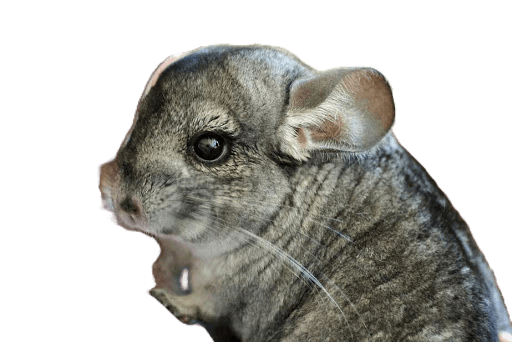
How Dangerous Can the Fleas be for the Chinchillas?
The fleas can stick to the skin of the chinchillas and keep sucking blood. They would actually bite the chinchillas, and that would – in some cases – be much dangerous for the pet. It can even endanger the life of your pet chinchilla.
Fleas can also cause skin infections. The massive blood loss due to the bites from fleas can cause anaemia in some of the chinchillas.
How to Check if your Chinchilla has Fleas?
Compared to finding the fleas on other pets, peeking into the fur and skin of the chinchillas to find the traces of fleas is quite a difficult task. How would you find if the chinchilla has fleas?
Parting the skin of the chinchilla to have a look at the skin can be a tedious task. Most of the times, it is easier said than done. In fact, in extremely rare cases where you may find the fleas moving on the outer parts of the fur of your chinchilla, but finding the fleas in other cases may not be easy. You may even not be able to be aware that your chinchilla is affected. There are no physical signs until it gets really difficult.
The best way you would be able to find the fleas on the body of your favourite chinchilla would be through the signs of flea dirt. Well, what is flea dirt, then? The flea dirt is essentially the flea excreta. It actually consists of dried blood and should ideally resemble the dried tiny black pieces of dirt.
They may be visible on the fur of your beloved chinchilla in most of the cases when your pet is infested with fleas. So, that would make it extremely difficult to find the same if you have a chinchilla with dark hair. In those circumstances, it may be a good idea to opt for brushing your chinchilla to find if it has any sort of fleas issue.
A few of the signs of a possible flea infection can be itching, hair loss, or scratching. If you really suspect there is any possibility of your pet being infested by the fleas, the best you can do is to take the chinchilla to a vet immediately. In fact, while the vet would be helpful enough in diagnosing the fleas on your chinchilla, he would also assist you in treating the issue of fleas.
Recommended Reading – Can Chinchillas Eat Strawberries & Oranges?
What are the Symptoms of Fleas in Chinchilla?
Discovering the symptoms of fleas in case of chinchillas is not that easy to come by. Other than the flea dirt that we have already discussed, there are a few signs that can help you get to understand the chinchillas are inflicted with the fleas.
If your pet chinchilla is affected by the fleas, you will find it a little irritated. You may find it scratching or biting itself quite often. It may also experience hair loss issues. These two should be the best tell-tale signs that should indicate a flea issue with your chinchillas.
A few of the changes in the chinchilla behaviour can be an excellent indication to prove the effect of fleas. Shaking itself quite often along with itching can be one of the common indicators to prove the flea infection. Yet another visible sign can be fur slipping and patchy spots on its hair.
Do note, however, that some of them may be false signals in some cases. The itchiness observed on a chinchilla may not necessarily mean it is suffering from flea problems. The itchiness can also be a result of the issues it may be facing because of the dust baths. Too frequent or too infrequent dust baths can result in severe issues in terms of skin-related irritations.
Giving a bath of a few commercially available dust can be much helpful in reducing the issues related to itching.
How to Treat Fleas in Chinchillas?
Now that we are aware that eve the Chinchillas can get fleas, our next point of interest should be how to get them treated. Since the chinchillas are rarely affected by fleas, there are not many prescriptions available for treating the fleas in chinchillas.
Please be aware that we do not recommend using the prescribed drugs and medications meant for cats and dogs for the chinchillas. Since they are very small and extremely delicate, it may be much essential to ensure that they are not harmed. Unlike the flea collars and flea medications that are available over the counter for the dogs, there aren’t any such options available for the chinchillas.
Never opt for such medications without the consultation with your vet. They can be too heavy for the chinchillas and can harm them. In some severe cases, they may even kill them.
The best option would be to check the possibility of providing your chinchillas with the best possible hygiene. This would include keeping the cage of the chinchilla cleaner. Yet another excellent option is to offer proper dust baths to your pet.
Preventive Care to Avoid the Possibility of Fleas in Chinchillas
While it is much rare to find the chinchillas to be affected by fleas, it may be a good idea to ensure that you follow a few precautions to make sure that such an eventuality is avoided.
There are plenty of ways you can make sure that the chinchilla that you own does not get infected by the fleas.
Can Chinchilla Fleas Spread?
Well, yes! If your chinchilla has fleas, it can spread to the entire house. In fact, if you have any other pets in your home, you may come across a situation where they too are infected by the fleas.
You would also need to disinfect the entire home once you find that your chinchilla has been infected by the fleas. Just ensure that the cats and dogs in your home have effective preventive measures. You can talk to your vet to decide the best preventive measures you can take. You can take up other actions such as vacuuming, cleaning, and even the use of insecticides.
The Concluding Thoughts
So, if you have been wondering whether chinchillas can get fleas, the discussion here should have answered your query in a most perfect manner. They are most likely to get infected by the fleas, but the possibility is much rare.
If you find that the chinchilla is indulging in scratching, biting, and itching itself, that would be a clear indication of fleas affecting your pet. Of course, it may also indicate other issues as well as we have already explained in the above discussion.
Well, chinchillas make the best pets and truly deserve the best care of ever possible. Take good care of them, and they would definitely assure you the best possible love ever!

-
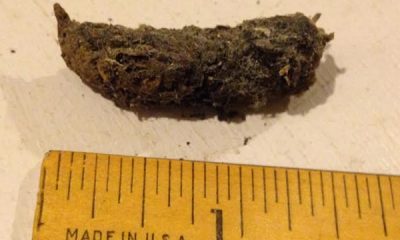
 Skunk4 years ago
Skunk4 years agoWhat Does Skunk Poop Look Like? Images & Identifications
-
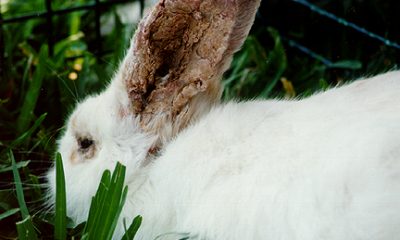
 Bunny5 years ago
Bunny5 years agoHow to Get Rid of Mites on Rabbits? #NaturalRemedies #Video
-
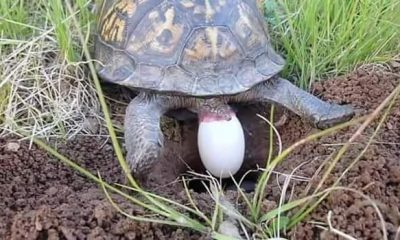
 Turtles5 years ago
Turtles5 years agoHow To Take Care of Turtle Egg At Home?
-

 Horse4 years ago
Horse4 years agoHow Much Weight Can a Horse Carry? #Clydesdale #Friesian #Mustang #Draft
-

 Turtles4 years ago
Turtles4 years agoHow to Take Care of Snapping Turtle Eggs? #Incubating #Hatching
-

 Bunny5 years ago
Bunny5 years agoHow Big Do Dwarf Bunnies Get? – Amazing Facts #Images
-
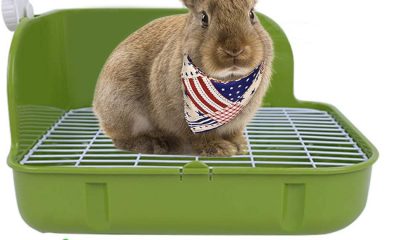
 Bunny4 years ago
Bunny4 years agoHow to Potty Train a Rabbit in House? Tips on Litter Training
-

 Turtles4 years ago
Turtles4 years ago8 Basking Rocks/ Platforms for Turtles – A Perfect Guide








